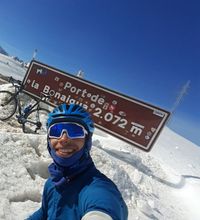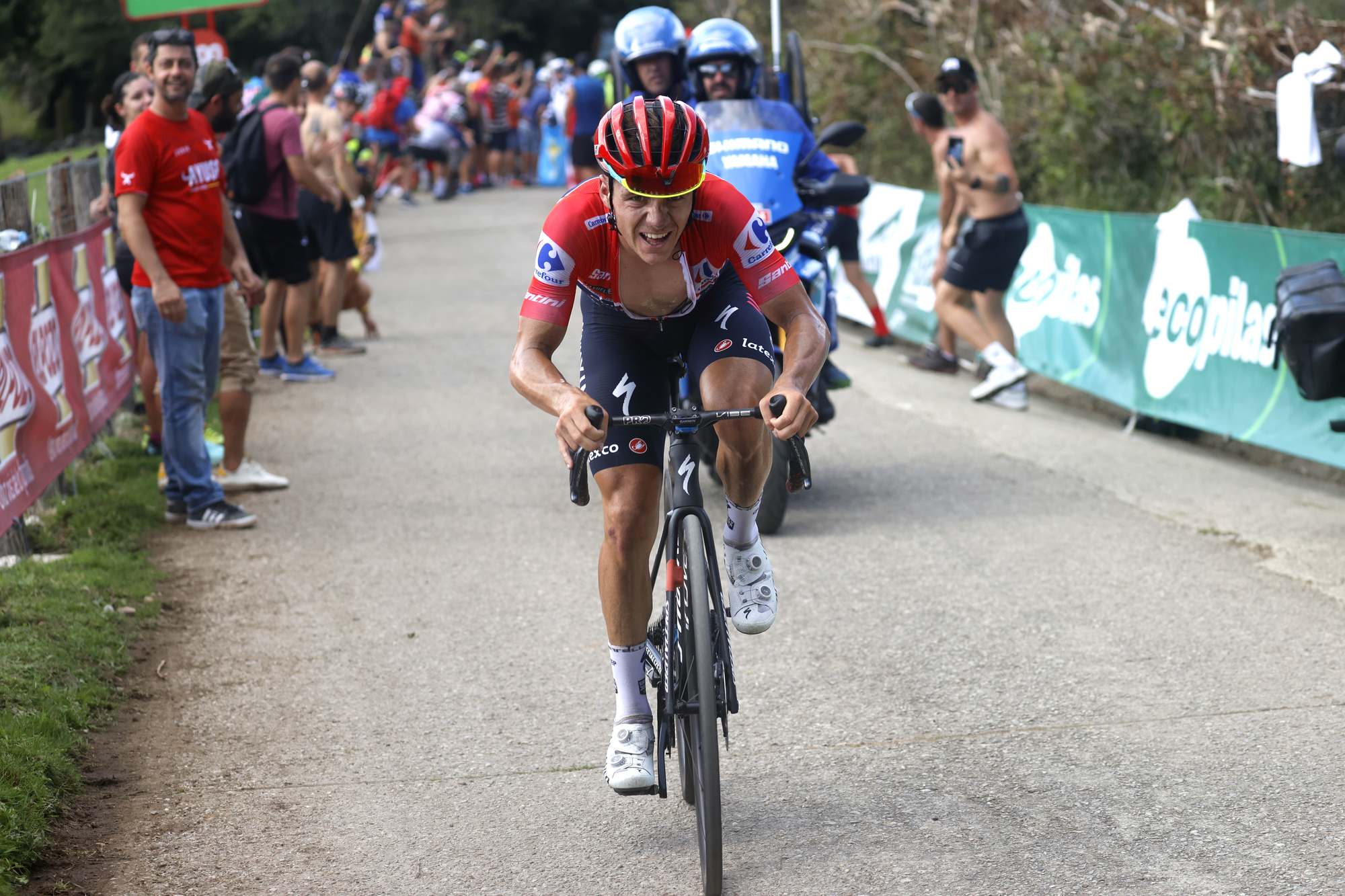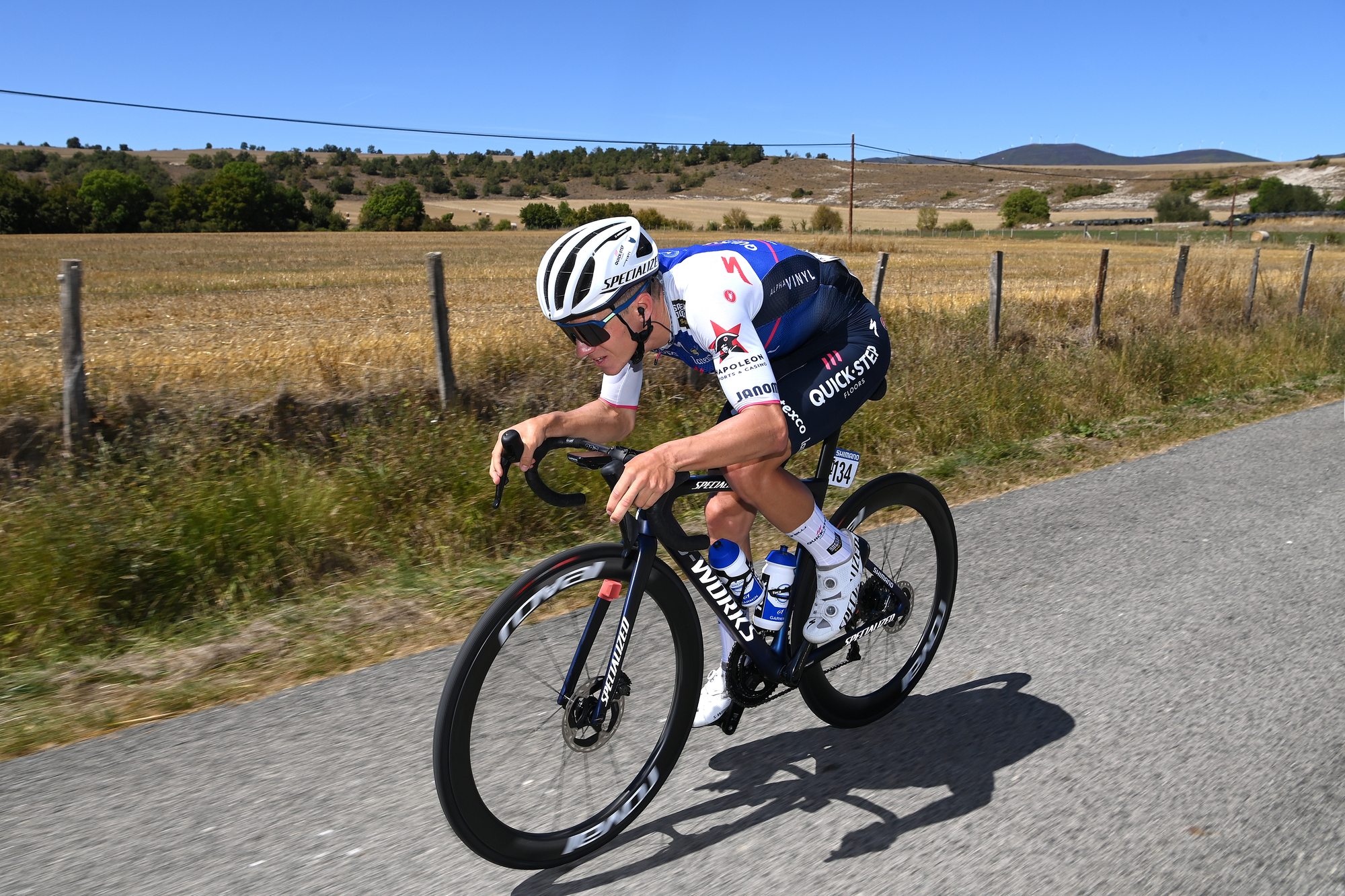Card game tantrums, altitude hotels and steep climbs: how Vuelta a España leader Remco Evenepoel prepared for glory
Evenepoel has based himself across Europe to prepare himself for what he believes is a genuine chance of winning the Vuelta


The latest race content, interviews, features, reviews and expert buying guides, direct to your inbox!
You are now subscribed
Your newsletter sign-up was successful
There’s a memory that gets passed around the Quick-Step Alpha Vinyl team frequently whenever discussion turns to Remco Evenepoel, the current leader of the Vuelta a España.
It’s not of a race or any of his extraordinary performances, but of a supposed relaxed evening at a training camp in Tenerife last winter.
“We were staying on Teide, at altitude, and one night we decided to play a card game,” Evenepoel’s coach, Koen Pelgrim, begins telling Cycling Weekly. “It’s a game where you have to play against each other and if someone is in the lead, the other three guys have to work together to make sure that the guy winning doesn’t win.
“If Remco was in the lead and we were playing against him it could be,” Pelgrim trails off, laughing. “It could get a little tense sometimes. You see, he’s a winner in everything that he does.
“He was probably like this when he was a footballer and it’s the same if you play monopoly or something else with him. If he loses, he can get very angry. He hates losing.”
The camp at Teide was more than a year out from the current Vuelta, but the Spanish Grand Tour was front and centre in the young Belgian’s aims.
Ever since he exited the 2021 Giro d’Italia after stage 17, Evenepoel has been determined to correct failings, improve on his weaknesses and correct what he believes are falsehoods about his apparent struggles on steep slopes and longer climbs. He's proven in the past week that they were indeed just that - falsehoods.
The latest race content, interviews, features, reviews and expert buying guides, direct to your inbox!
The man who despises defeat, who once quipped that “only winning counts”, has, at times, led a solitary life in the preceding months, decamping to Livigno in the Alps and Alicante in Spain where he based himself in hotel rooms that simulate being at altitude.
In Livigno, he would devise routes that included the fearsome Mortirolo, the Italian climb averaging almost 13 percent for one five kilometre section, while in Alicante he would seek out El Miserat, a climb that averages 11.1 percent for five kilometres with pitches nearing 20 percent.
“On specific days, he’d go to that climb and just repeat steeper efforts up there,” Pelgrim informs. “I don’t necessarily agree [that he struggles on steep and longer climbs] but if you’re not good, or if somebody else is better than you, there will be big gaps. It’s not because it’s steeper that he’s worse [than his rivals], but he likes to keep a high cadence. You can adapt to that though with the gearing and I think we saw what he did at San Sebastian [at the end of July that he won for a second time]. He was OK there.”
Livigno provided the base that Evenepoel needed, while Alicante acted as the specific final training towards his shot at the Vuelta, his crisp, defined tan lines a clear indicator of just how long Evenepoel spent outside training in the intense heat of a even-hotter-than-usual Spanish summer.
“When it’s warm and steep, you suffer more from the heat, and that was an important point to work on towards the Vuelta,” Pelgrim explains. “We could get two things in at once.
“Everybody has their favourite place [to train] and before the Vuelta we had the idea of getting another block of training done in the heat. He would start a ride at 10 and finish at 4 or 5 with a coffee in between. He had a lot of heat exposure.”

Rather than opting for the tourist-occupied hotels in Calpe or even Benidorm, Evenepoel stayed at the Syncrosfera hotel in Dénia, a state-of-the-art facility where room occupants can change the oxygen settings to imitate being at an altitude of up to 4,000m above sea level.
Pelgrim continues: “I once worked at the Leuven Bakala Academy [in Belgium] where we had altitude rooms and we did some research there that showed the benefits of it. Remco spent 10 days at the hotel in Alicante.
“At the hotel you can play with it, adapt it, always increase the altitude to have an increased exposure to it. It can trigger the body and if you can keep triggering the body in order to keep making gains, that’s a good thing. In Alicante we could do everything because of the combinations of heat, effort and altitude.”
QuickStep did not expect Evenepoel to win this Vuelta before it got underway, but there was quiet optimism among them that he was capable of doing so, derived not just from his past results but from how impressed they’ve been by his single-mindedness and focus.
After nine stages, he's leading the race by 72 seconds from Enric Mas and has almost two minutes advantage on defending champion Primož Roglič. Little wonder his DS Wilfried Peeters was so bullish about his chances earlier in the race. “He can do it, for sure,” he said. “It’s his second Grand Tour, he’s a young kid, and we will not give pressure to him, but he has the legs.”
There were intermittent key goals since last year’s Giro Italian race - namely last season’s Olympics and World Championships and several week-long stage races in which he triumphed in - but everything has been a small part of the larger Vuelta picture.
His confidence and belief is unwavering, but the 22-year-old Evenepoel competing in Spain is slightly different to the 21-year-old version of himself who was the attention of much intrigue in Italy.
“There was a lot of pressure from the outside, and it could only go wrong when you saw the expectations that were not very reasonable,” Pelgrim says, referencing the fact that the Giro also doubled up as Evenepoel’s comeback race since his serious crash at Il Lombardia. “Everybody always expects miracles because sometimes he also makes them, but it was difficult to get back to his best level. But he wanted to prove something.”
Pieter Serry, his teammate at both the Giro and this year’s Vuelta before he withdrew after a positive Covid test, remembers: “I think he was too excited after his big accident. It was actually not realistic to have GC goals and I think he learned a lot.”
The experienced Serry, who has acted like a close confidante to Evenepoel, speaks about the different environment this time around. “We’re more relaxed now,” he says. “The atmosphere is really good on the table and he’s acting like a leader. We know our job, we know what we have to do, and I think we have a really strong squad to support him, maybe a bit better than what we had at the Giro.”
Evenepoel’s intent was obvious before he took red on stage six and then extended his lead on stage nine. Even after relatively tame days of little drama and action, he spent 30 minutes warming down after every stage, first with a 25 minute spin on his time trial bike and then five minutes in a freezing cold ice bath. He’s leaving no stone unturned in his quest to win red.
After the first nine stages, he's proven that he really can threaten to dethrone Roglič of his title as El Rey de La Vuelta.
Pelgrim is reminded about his rider’s insatiable thirst to win, whether that’s bike races or card games; that thirst dictates his every move. “He really knows what he wants,” Pelgrim concludes. “In training, I have to say he’s pretty easy to work with because he has confidence in what we do and he follows it really well so there’s not much discussion. But sometimes we have to have arguments to change his mind, but that’s a good thing because we want to get to the best solution.
“That’s what a good leader should do: not to question everything but to make sure everyone is pushing in the right direction. He has these skills.”
The original version of this article was first published on August 24, but it has been amended to reflect results in the Vuelta a España.
A freelance sports journalist and podcaster, you'll mostly find Chris's byline attached to news scoops, profile interviews and long reads across a variety of different publications. He has been writing regularly for Cycling Weekly since 2013. In 2024 he released a seven-part podcast documentary, Ghost in the Machine, about motor doping in cycling.
Previously a ski, hiking and cycling guide in the Canadian Rockies and Spanish Pyrenees, he almost certainly holds the record for the most number of interviews conducted from snowy mountains. He lives in Valencia, Spain.
